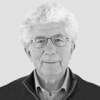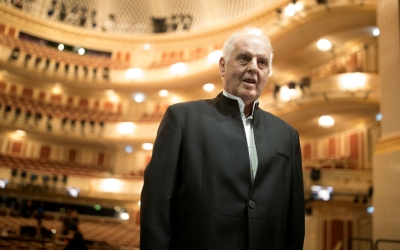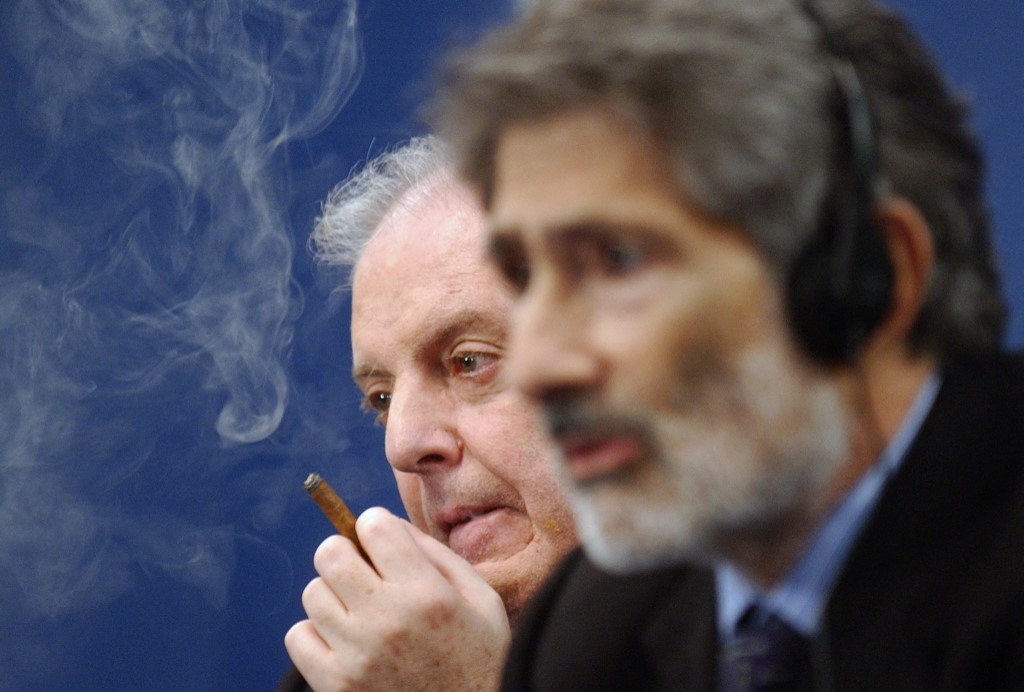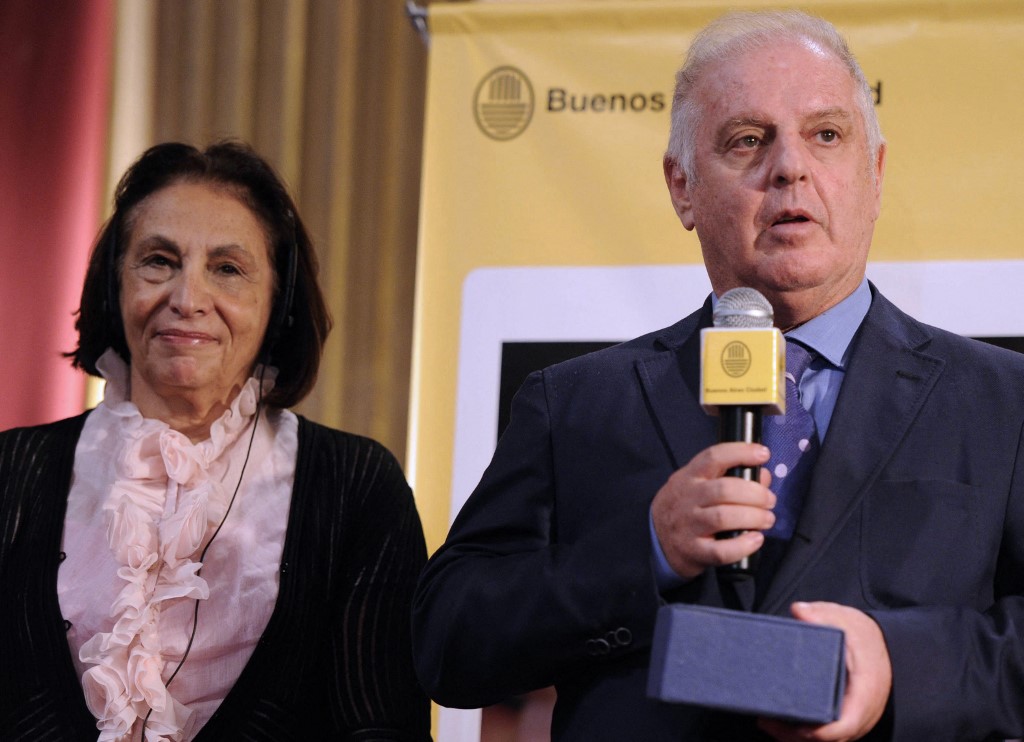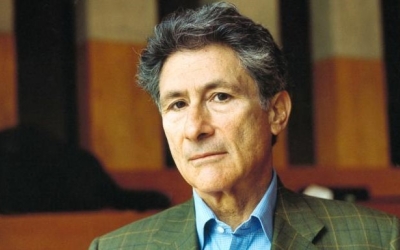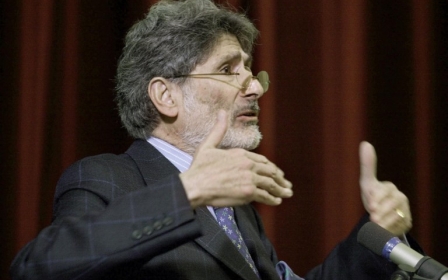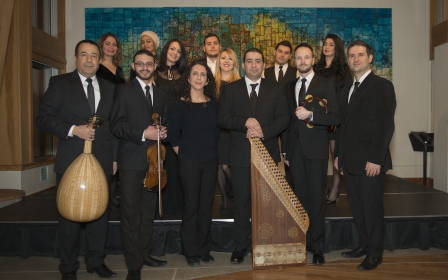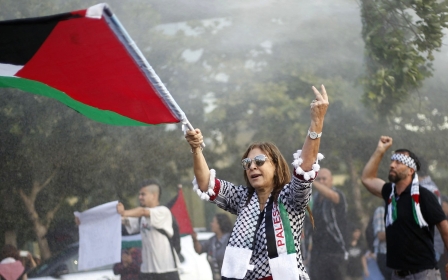Israel-Palestine and Daniel Barenboim's musical bridges
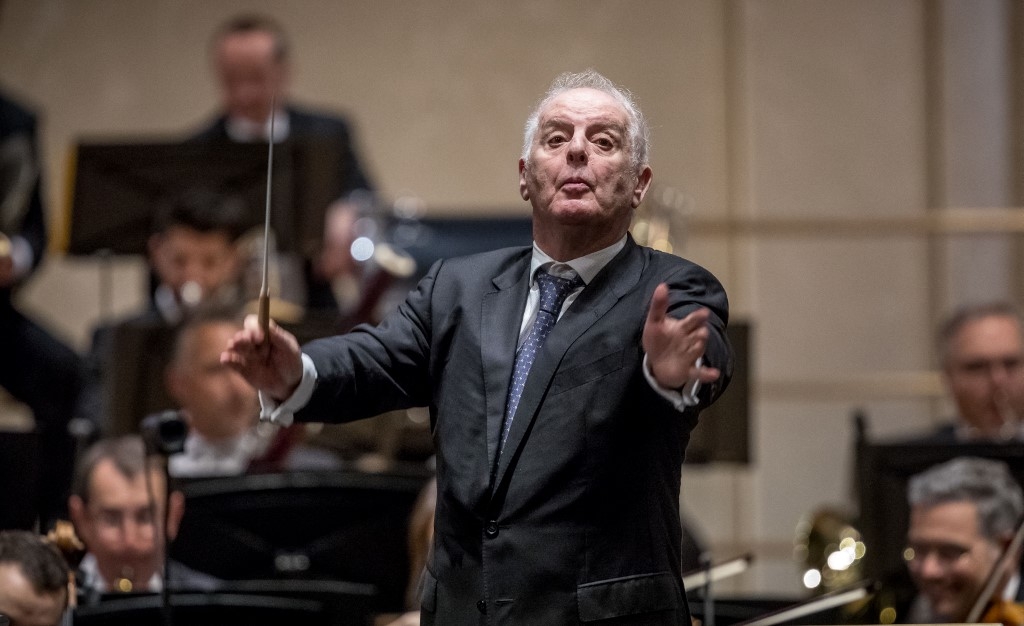
In his long and illustrious career, Daniel Barenboim has achieved the rare distinction of staying at the top of his field both as a pianist and as a conductor. He is widely regarded as one of the greatest musicians of the past half-century. But he is also one of the world's great public figures, with unique contributions to the advancement of musical education and to exploring pathways to peace in one of the most bitter and intractable international conflicts of modern times.
His recent announcement that he would withdraw from public performance, at least temporarily, due to a neurological condition, came as a shock to his many admirers. The Guardian editorialised on 10 October 2022 that his role as a musician and as a public figure were inseparable: "He stands in the tradition of Arturo Toscanini, Pablo Casals and Yehudi Menuhin as a classical musical giant who is also a thinker and a moral beacon. In modern times, there has been no one to compare with him."
Barenboim thought that music would be a wonderful way to bring people together, because you cannot be a lukewarm musician - music requires passionate involvement and effort
As well as his dedication to making music, Barenboim has demonstrated his qualities as a humanist with a bold vision of the place of music in the world. "Harmony in personal and international relations," he observed, "can only exist by listening, each party opening its ears to the other's narrative or point of view." One of his most imaginative ventures has been to bring music to bear on the conflict between Israel and its neighbours.
In 1999, Barenboim and Edward Said, the Palestinian literary critic and public intellectual, established the West-Eastern Divan Orchestra (Wedo). Said's career-defining work, Orientalism, was a seminal critique of European perceptions of the Middle East. The orchestra sought to promote dialogue between the various cultures of the Middle East through the experience of playing music together.
As he explained in his autobiography, A Life in Music, Barenboim thought that music would be a wonderful way to bring people together because you cannot be a lukewarm musician - music requires passionate involvement and effort.
New MEE newsletter: Jerusalem Dispatch
Sign up to get the latest insights and analysis on Israel-Palestine, alongside Turkey Unpacked and other MEE newsletters
The first roster of Israeli, Palestinian and other Arab musicians gathered for an intensive three-week workshop in Weimar, Germany. This workshop would not have been possible in Israel or any Arab country; it needed a neutral territory. In Weimar, Barenboim noted in his autobiography, "it does not matter whether you are from Israel or Palestine, or whether you are an Arab or a Jew. In Weimar, an Israeli and an Arab who have total ignorance of each other, or even hatred for one another, would share a music stand and play the same notes together - with the same dynamic, with the same attack, with the same vibrato."
Inspire and enrich each other
The orchestra was named after an anthology of poems by Goethe, a central work for the development of the concept of world culture. In 2002, the Regional Government of Andalusia provided a permanent base for the annual summer school of the ensemble in Seville, Spain. Since then, young musicians from Spain have also taken part in this 100-player orchestra. This unique orchestra rehearses every summer in Seville and then goes on a world tour. Its 2005 tour included a notable performance in the Palestinian city of Ramallah. For many young Palestinians, this was the first time they saw an Israeli who was not a soldier.
Andalusia, even more than Weimar, is an appropriate location for this orchestra because in the Middle Ages it provided an early example, indeed a model, of Muslims, Christians and Jews living together in peace and harmony. The history of Andalusia showed that Jews and Arabs can coexist and, even more than that, inspire and enrich each other.
Although my own connection with Daniel Barenboim was slight, it affected me profoundly, and I owed it entirely to Edward Said. One day, in 2002, Edward called to say that Daniel had read my book The Iron Wall: Israel and the Arab World on his recommendation, found it interesting and would like to meet me. He was giving a recital at the Royal Festival Hall in London, and he invited me to go as his guest and to meet for a private chat before the recital.
Edward told me that he and Daniel were very close friends, they spoke every day on the phone, and they had published together Parallels and Paradoxes, a book based on a series of conversations they had on music, culture and politics. The book is an exemplar of how ethnonational differences and tensions can be creatively engaged with and transformed through the universal humanistic medium of music.
Edward added that Daniel had many interests apart from music; that he was appalled by the Israeli treatment of the Palestinians; that he wanted to do something about it beyond wringing his hands; and that the workshop the two of them had begun to organise for young Israeli and Arab musicians was proving to be a real success.
My meeting with Daniel Barenboim took place in a small room backstage at the Royal Festival Hall and lasted about half-an-hour. Despite the stress of the imminent solo recital, and the large number of people milling around, he was calm, composed and utterly focused on our conversation. With the friends who came to greet him, he was rather curt, dismissing them by saying: "This is Professor Shlaim, he has written a very important book called The Iron Wall, and you must read it."
My impression of Barenboim before our meeting was that he was obviously a great musician and a sincere man of peace but perhaps not very savvy politically. But when we met, he seemed highly sophisticated and with deep insight into the psychology of all the protagonists in the conflict. He also understood something that I had not fully appreciated; namely, that culture is a resource for power and that it can be used towards a political end: to break down national stereotypes and to find avenues to mutual understanding in the conflict-ridden Middle East. I remain intrigued by his casual remark that the impossible always attracted him more than the difficult.
Much of the conversation revolved around the Arab-Israeli conflict. In Barenboim's opinion, The Iron Wall was objective and informative and free from the polemics that often mar other books on the subject. He wanted to know whether there was going to be a Hebrew edition of the book. I said I had approached several Israeli publishers but elicited no interest, so I gave up. He reprimanded me mildly for my indifference and offered to approach other Israeli publishers on my behalf. He was also keenly interested in a German edition of The Iron Wall, but here too his efforts bore no fruit. It was some consolation, however, to be able to boast that Daniel Barenboim was my literary agent!
Victims of victims
Edward Said died of leukaemia in 2003. The West-Eastern Divan Orchestra was his proudest achievement. His death was universally mourned and not only by Palestinians. To his Jewish friend, his death was a terrible blow both at the personal and professional level. Their partnership in guiding the young musicians from the region had been extremely fruitful: Barenboim took the lead on the musical side; Said, though an accomplished musician in his own right, took the lead in the educational activities that accompanied the music-making.
Said once described the Palestinians in a memorable phrase as the victims of victims. The Palestinians, he emphasised, had to understand the impact of the Holocaust on the Jewish psyche, and especially the obsession with security, if they were to make sense of Israel's attitude towards them. The Israelis, on the other hand, had to acknowledge that the establishment of their state in 1948 involved a monumental injustice to the Palestinians.
One episode from the Divan's phase in Weimar poignantly illustrated the complex psychological problems of this unusual ensemble and the skill with which Edward navigated around them. He was able to give the young Arab musicians the feeling that he was one of them. At the end of one of his talks, he suggested a trip to Buchenwald concentration camp.
As Barenboim recalled, he was able to accomplish this without the Germans feeling guilt, without the Israelis feeling discomfort, and without the Arabs feeling that it did not concern them. With reference to Goethe's Faust, he taught them how the devil in each of us can turn into a collective movement. He put it to them that antisemitism, persecution and the Holocaust was that devil exactly, and that this devil was inherent in the same nation that gave us Beethoven and Goethe. The next day, all but two of the 78 musicians went along.
What Said wanted was not to draw a line over the past but to gain a broader understanding of the roots of the Arab-Israeli conflict, to adopt a contrapuntal approach to their parallel histories, as he liked to put it. This was a consistent thread in his writing from The Question of Palestine to his last article. To his way of thinking, Israelis were not simply oppressors and Palestinians simply victims: they were "two communities of suffering".
Cooperation between the two warring tribes in Palestine was his ultimate goal but not at the expense of the dignity of his own people
Said himself combined great humanity with a strong sense of dignity. Cooperation between the two warring tribes in Palestine was his ultimate goal but not at the expense of the dignity of his own people. This stress on the need for mutual respect was an important part of his teaching and of his legacy.
Some cynics have poked fun at the underlying idea of the Divan, of music as a universal language that can reconcile peoples of profoundly different backgrounds and national aspirations. Enthusiasts of the Divan, on the other hand, have made exaggerated claims on its potential contribution to peace, even calling it a "peace orchestra".
Barenboim himself made no such claims about the philosophy that underpins the Divan. Rather than aim high and score low, he wisely prefers to aim low in the hope of scoring high. "You can't make peace with an orchestra," he said in a 2008 interview with Ed Vulliamy of the Observer, but one can "create the conditions for understanding" and "awaken the curiosity of each individual to listen to the narrative of the other".
"The Divan is not a love story, and it is not a peace story," he explained. "It has very flatteringly been described as a project for peace. It isn't. It's not going to bring peace, whether you play well or not so well. The Divan was conceived as a project against ignorance. A project against the fact that it is absolutely essential for people to get to know the other, to understand what the other thinks and feels, without necessarily agreeing with it.
"I'm not trying to convert the Arab members of the Divan to the Israeli point of view, and I am not trying to convince the Israelis to accept the Arab point of view... But I want to - and unfortunately, I am alone in this now that Edward died a few years ago - I'm trying to create a platform where the two sides can disagree and not resort to knives."
Breaking down national barriers
The summer after Said's death, Barenboim convened in Seville, in addition to the young musicians, a small symposium, which included Felipe Gonzalez, the former socialist prime minister of Spain, Raja Shehadeh, the Palestinian human rights lawyer and author, Yaron Ezrahi, the Israeli academic, myself, and members of Edward Said's family.
Our discussions proceeded during and in between the musical rehearsals. Mariam, Said's widow, explained that her late husband devoted to this project a large part of his life both because of his commitment to the Palestinian cause and because of his belief in the power of music to break down national barriers.
Wadie, Said's son, added that his father got involved in this workshop because of the unique talent of Daniel Barenboim and because it offered an opportunity to do something concrete and constructive involving the two sides. Najla, Said's daughter, recalled that her father always used to tell her that he and his generation were too ideological, and that the only hope of change lay with the young people of her generation.
Our discussions led, under Barenboim's leadership, to the issuing of a public declaration, a passionate plea for a more active European role in settling the dispute between Israel and the Palestinians. The discussions that preceded the drafting of a declaration ranged far and wide, but there was complete consensus on one point: the interdependence between the two parties to the conflict. Like it or not, Israelis and Palestinians are simply fated to live together cheek-by-jowl on the same small piece of land.
In the first draft of the declaration, I wrote that Israelis and Palestinians are doomed to live together. Barenboim thought this formulation was too pessimistic and suggested I changed "doomed" to "destined".
All previous efforts to solve this conflict failed because they treated it as a zero-sum game, whereby a gain by one side is necessarily at the expense of the other side. Our aim was to move from a zero-sum game to a positive-sum game, in which both sides simultaneously reduced their costs and enhanced their benefits. The ideas we put forward were not directed against anyone; they were designed to help the parties break out of the cycle of violence, bloodshed and mutual destruction. Our purpose was not to propose new solutions but to offer a new definition of the old problem, and new ways of looking at it.
Like it or not, Israelis and Palestinians are simply fated to live together cheek-by-jowl on the same small piece of land
On the margins of the symposium in Seville, I had several private conversations with Barenboim, mostly about Israel. One of them was about Ehud Barak, the former chief of staff of the Israel Defense Forces and ex-prime minister. Barak and Barenboim are friends, brought together by their love of music.
For me, Barak epitomised the arrogance of power. Barak claimed that at the Camp David summit of July 2000 he made to Yasser Arafat the most generous offer of a two-state solution and that Arafat rejected the offer and made a strategic decision to return to terror.
Barak's takeaway from the failed summit became his famous mantra that "there is no Palestinian partner for peace". This claim was widely believed in Israel, and it contributed to the defeat of the Labor Party and to the victory of Ariel Sharon in the 2001 election: if there was no Palestinian partner for peace, there was no point in voting for a party that advocated negotiations with them.
'Only hope is a pragmatic peace'
My own reading is that Arafat rejected Barak's offer because it did not meet the minimal Palestinian demands on Jerusalem and the right of return of the 1948 refugees. Moreover, Barak insisted that the Palestinians sign on the dotted line that they had no further claims against Israel. It was Barak's insistence on finality, I believe, that scuppered the chance of an interim agreement or a pragmatic settlement.
Barenboim told me that when pressed on this issue, Barak admitted to him that I was right, that at Camp David he demanded an ideological and not merely a pragmatic end to the conflict.
Lest I sound immodest, let me quickly add that Barenboim did not need me to educate him about the distinction between ideological and pragmatic peace. In his 1999 autobiography, a year before The Iron Wall was published, he wrote: "I am more convinced than ever that it is impossible to expect an ideological peace with the Palestinians. They will always feel that their national aspirations were not respected because they were in complete contradiction to our Jewish nationalist aspirations.
"The only hope is a pragmatic peace that evolves as a mixture of two elements - firstly, the moral one: our national aspirations were fulfilled in 1948 and theirs have not been; secondly, the realistic one: we are here and they are here, therefore we must learn to share the narrow geographic limitations. The centuries-old tradition of Jewish intelligence must give us the inspiration to find a solution that is honourable, dignified and secure for the Palestinian and Jewish people."
Since the death of Edward Said, Barenboim has continued to direct the Divan orchestra and expand the scope of their joint educational activities. In 2004, the Barenboim-Said Foundation (USA) was established in New York, dedicated to the empowerment of young musicians from the Middle East and North Africa. It is guided by the belief of the founders in the power of humanism and the hope that cultural exchange can serve as a catalyst for social change.
The mission of the foundation was stated clearly by Barenboim, with the habitual emphasis on dialogue and young people: "Our project may not change the world, but it is a step forward. Edward Said and I see our project as an ongoing dialogue, where the universal, metaphysical language of music links with the continuous dialogue that we have with young people, and that young people have with each other."
Driving force
Mariam Said is the vice president and the real driving force behind the foundation. She is actively involved in all the projects that are associated with the name of her iconic late husband. She is the institutional memory and the principal cheerleader of the Divan. Every summer she attends the rehearsals of the orchestra in Seville, she forms personal friendships with the players, and then accompanies them on their tour of public performances.
In recognition of her dedication to the continuing success of the Wedo, Mariam Said received an honorary doctorate from the Universidad Nacional de Tres de Febrero, Buenos Aires, Argentina in 2014. In an interview with the Wiener Zeitung, she described the philosophy of the Wedo and the foundation as follows:
"Think of the principle of counterpoint: single voices are recognised as independent objects. The final result is harmony on a higher level. We are not a political but a cultural and humanitarian project. Understanding is the start to reduce mistrust. We are the microcosm of a society that does not exist yet."
Since the founding of the West-Eastern Divan, Barenboim's modest mantra has simply been 'we are an orchestra against ignorance'
In addition to managing the Divan, the Barenboim-Said Foundation assists in other organisations such as the Academy of Orchestral Studies, the Barenboim-Said Centre for Music in Ramallah, the Edward W Said Music Kindergarten in Ramallah, and the Music Education in the Early Childhood Project Project in Seville.
In 2016, then-UN secretary-general Ban Ki-moon designated the orchestra as a United Nations Global Advocate for Cultural Understanding, praising its contribution to coexistence and peace.
Also in 2016, the Barenboim-Said Akademie was established in Berlin as a state-accredited music conservatory, offering bachelor of music degrees and artist diplomas. It is based on the founding principles of the Divan and Daniel Barenboim is its president.
Since the founding of the West-Eastern Divan, Barenboim's modest mantra has simply been "we are an orchestra against ignorance". The maestro himself would rather be listened to than loved. The record shows that over the past 60 years, he has managed both. His son Michael ("Misha"), a talented violinist, is the current concertmaster of the Divan.
Cosmopolitan by background, internationalist by conviction, and humanist in his secular faith, Daniel Barenboim's lifetime achievements have been monumental and on a global scale. His journey has taken him from Buenos Aires to Jerusalem, from Chicago to Berlin, with Paris, Milan and Ramallah along the way. In Israel, he has helped to break the all but official ban on the playing of Wagner. In Palestine, he has helped to highlight aspects of Israeli society other than the hated occupation.
At the BBC Proms in London in 2017, he spoke of the dangers of nationalism. In Britain, he showed himself not only as a consummate musician but as a superb communicator in his 2006 Reith Lectures. He also emerged as a champion of the music of Edward Elgar, whom he once described as making "the best case against Brexit, because he was a pan-European composer".
Above all, as a public figure, Barenboim deserves credit for the bold and ethical stance he has taken in confronting the Arab-Israeli conflict and for the time and intellectual energy he continues to invest in promoting dialogue and exploring cultural pathways to peace. In a region renowned for its divisions and disagreements, he is the bridge-builder par excellence.
The views expressed in this article belong to the authors and do not necessarily reflect the editorial policy of Middle East Eye.
Middle East Eye delivers independent and unrivalled coverage and analysis of the Middle East, North Africa and beyond. To learn more about republishing this content and the associated fees, please fill out this form. More about MEE can be found here.


